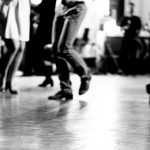Importance of Mental and Physical Readiness
Achieving judo readiness demands a blend of both mental preparation and physical training. Mental toughness significantly impacts competition performance, allowing athletes to remain focused and resilient under pressure. This resilience fosters quick decision-making and strategic thinking during intense matches. Cultivating mental preparation includes visualizing successful maneuvers and employing breathing exercises to manage stress effectively.
On the physical side, key training components for judo athletes encompass strength conditioning and agility workouts. Physical training should focus on judo-specific movements, ensuring athletes possess the strength and flexibility to execute techniques with precision. Regular practice of both strength and judo drills is essential in building the physical readiness necessary for peak performance.
Additional reading : Elevate UK MMA Training: Harnessing Yoga’s Full Potential for Fighters
Balancing these elements is vital. An athlete’s mental mindset should complement their physical state, striking harmony between the two. For instance, a fatigued body can negatively affect mental focus, while lack of mental preparation can undermine physical capabilities. Thus, integrating both aspects in training regimens ensures judo performers maintain optimal readiness. Athletes can leverage tactical drills paired with mental visualization techniques to foster robust, synchronized development.
In conclusion, both mental and physical components must be prioritised equally for an athlete to achieve competition-readiness, improving performance and ensuring resilience.
This might interest you : Harnessing mindfulness for peak performance: elevating uk combat sports athletes” competitive edge
Training Strategies for Physical Readiness
To achieve peak physical readiness for judo, athletes must design comprehensive training programs that incorporate both strength conditioning and tactical judo-specific drills. Developing a Strength and Conditioning Routine forms the foundation of any effective training program. This includes integrating exercises such as squats, deadlifts, and clean movements, which mimic the dynamic judo movements athletes perform. Strength building, particularly in the core, legs, and upper body, enhances stability and power, crucial in executing throws and holds effectively.
Effective Judo Drills for Skill Development
Implementing judo drills consistently refines skills essential for competitive performance. These drills should focus on grip strength, balance, and movement precision. Additionally, working on transitions between techniques improves agility and response time. By incorporating regular sparring sessions, athletes simulate real-match conditions that help in honing strategic thinking and adaptability.
Importance of Flexibility and Recovery
Flexibility and proper recovery are vital in preventing injuries and maintaining performance levels. Stretching routines should be included in each training session to aid flexibility. Moreover, allowing time for recovery through activities like yoga or swimming not only relieves muscle tension but also contributes to sustained athletic growth. Implementing rest periods and prioritizing sleep enables the body to repair, ensuring athletes remain at their physical best for competitions.
Nutrition for Optimal Performance
Proper nutrition planning is crucial for judo athletes to achieve peak performance. A well-balanced diet for athletes should include an appropriate macronutrient breakdown, consisting of carbohydrates, proteins, and fats. Carbohydrates are essential as the primary energy source, while proteins aid in muscle repair and recovery. A moderate intake of healthy fats supports sustained energy levels during training and competitions.
Pre-competition meals are pivotal. They should offer easily digestible carbohydrates, moderate protein, and minimal fat to fuel the athlete without causing digestive discomfort. Consider options like a banana with peanut butter or oatmeal with berries. It’s equally essential to maintain optimal hydration; athletes should drink adequate water before, during, and after activities to avoid dehydration.
Timing plays a significant role in nutrition around training sessions. Consuming a meal rich in carbohydrates and protein two to three hours before a workout provides necessary energy. Post-training nutrition, within 30 minutes of exercise, should focus on replenishing glycogen stores and facilitating muscle repair. A protein smoothie or a turkey sandwich can be excellent post-training options.
Maintaining a meticulously planned dietary regimen tailored to judo-specific demands enhances both physical readiness and overall athletic performance. This strategic approach ensures athletes are fuelled, hydrated, and ready to engage in each training session effectively.
Mental Resilience Techniques
To achieve judo readiness, implementing an effective mental strategy is crucial, enhancing focus and confidence in competitive settings. One key technique is visualization, where athletes mentally rehearse their routines and anticipate various match scenarios. This mental rehearsal aids in ingraining successful maneuvers and boosting self-assurance, preparing the mind for the unpredictability of competitions.
In addition to visualization, incorporating breathing exercises caters to managing competition-induced anxiety. Structured breathing assists in calming nerves, maintaining composure, and sustaining mental clarity. Techniques such as diaphragmatic breathing or the 4-7-8 method can prove beneficial. These exercises reduce stress, enabling athletes to navigate high-pressure situations with poise.
Developing a pre-competitive mental routine further supports mental readiness. This routine might include setting short-term goals, affirmations, and arriving early to the venue to acclimate to the environment. Consistent implementation establishes a valuable ritual, fostering a stronger competitive mindset. By practising these mental resilience techniques, judo athletes can heighten their psychological preparation, leading to improved performance and maintaining a balanced approach in their physical and mental training aspects.
Expert Insights and Testimonials
Efforts to achieve judo readiness benefit significantly from expert opinions and lived experiences. Insights from seasoned coaches illuminate effective training strategies, balancing mental preparation and robust physical training. Coaches emphasize the importance of mental toughness, reinforcing how a resilient mindset enhances an athlete’s ability to perform under pressure. Strength conditioning routines tailored to judo-specific movements also take precedence.
Interviews with Coaches
Judo coaches often highlight strength training’s role in building an athlete’s physical foundation. Through strategic and intensive training programs, athletes develop essential power, coordination, and agility. Coaches note that tactical judo drills help refine crucial skills, enabling swift transitions during matches. They also advocate for mental preparation, urging athletes to engage in visualization and breathing exercises.
Athlete Testimonials on Readiness
Athletes consistently stress the balance between mental and physical training. Mental resilience, paired with physical readiness, is frequently cited as a cornerstone for success. Testimonials reveal that consistent practice and adherence to strategic plans lead to enhanced confidence and readiness.
Research on Psychological Preparation
Sports psychology research supports coaches’ and athletes’ insights. Studies demonstrate how mental resilience complements physical training, maximizing performance. Effective mental strategies, such as visualization, and structured mental routines, boost competitive mindsets. This solid underpinning empowers athletes to manage anxiety and pressure, ensuring preparedness for high-stakes competitions.
Frequently Asked Questions
In the realm of judo preparation and competition, athletes often seek clarity on several fronts.
What are some common misconceptions about training for judo championships?
One prevalent misconception is that the more intense the training programs, the better the performance. In reality, overtraining can lead to injuries and burnout, which can hinder both physical and mental readiness. Properly balanced training, emphasizing rest and recovery, is crucial for sustainable performance.
How can athletes effectively manage anxiety and pressure during competitions?
Adopting a solid mental strategy can be transformative. Techniques like visualization and structured breathing exercises, including methods such as the 4-7-8 technique, allow athletes to maintain focus and control anxiety, fostering a strong competitive mindset.
What are effective tips for managing injuries and ensuring recovery?
An effective approach involves incorporating recovery techniques such as ice baths, massages, and yoga into training schedules. Active rest, proper nutrition, and hydration also aid in injury prevention and enhance overall performance. Monitoring physical signs and adjusting the intensity of training programs can mitigate potential risks. Building a robust support system with coaches and medical professionals is also vital for long-term athlete wellbeing.











